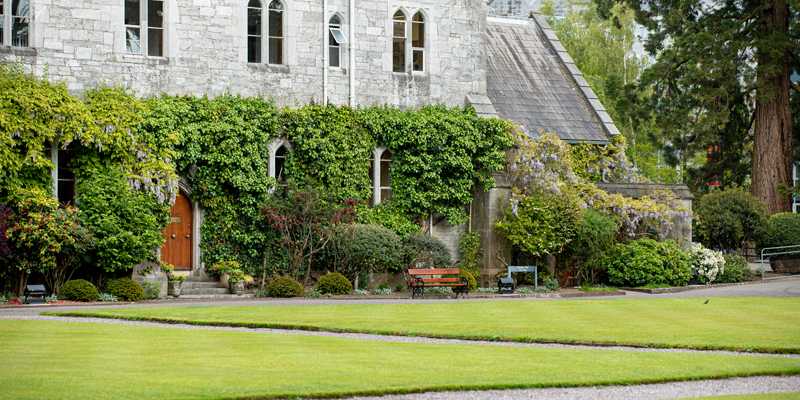In This Section
Ph.D. Studentship in Computational Modelling

Applications are invited for a fully funded PhD scholarship in Computational Modelling of Metal Organic Frameworks (MOFs).
A MOF is an infinite network of metal ions or metal clusters bridged by organic ligands through coordination bonds. The range of potential new materials is enormous as different structures and properties can be obtained by the judicious combination of metal and ligand. Most of the research on MOFs is currently focused in the context of gas separation and storage but applications in other fields such as catalysis, electronics, optics... have been also envisioned. The experimental bottle neck, however, is that in reality only a small fraction of the limitless number of MOFs can be synthesized and tested. Therefore there is an important opportunity for computational approaches to identify the most promising MOFs leading to the synthesis of materials for the desired type of applications.
The PhD student will be supervised by Dr Davide Tiana who has a very strong track record and international reputation in computational chemistry, and has recently joined UCC with a vision for developing a strongly performing international group in the field of hybrid materials design. During the PhD the student will have the opportunity to become an expert in materials modelling having access to the Irish Centre of High-End Computing (ICHEC) and performing simulations that goes beyond the state-of-the-art of computational chemistry. Moreover the work will be carried out in close collaboration with experimental groups ensuring the synthesize and characterisation of the best materials generated during the PhD.
Particularly the student will be able to chose between three strategic research area:
1) Opto-electronics
The demand of more energy combined with the requirement of reducing greenhouse emissions has made the developing of new electronic devices challenging. Improvements in the efficiency of applications like solar-cells, light emitting diodes or semi-conductors are then required. Being able to combine organic and inorganic conductive mechanism, MOFs are very promising candidates for the next generation of devices; the main limitation on using MOFs for optoelectronics is that, at present, the MOFs optical response is poorly understood. This project aim to obtain a fundamental understanding of the structure-property relation between MOFs structures and optical properties opening MOFs applications in material transparency, quantum dots, n-type semiconductors and light emitting diodes.
2) Photo-catalysis
Chlorine production is a massive industry that produces up to 60 million tons consuming more than 150 Twh electricity per year, which makes it clear that improvements in efficiency of these processes could yield significant reductions in world economy and energy consumption. The current state-of-the-art is based on electrolysis with membrane/diagram cells. Photo-catalytic evolution of chlorine offers a cheaper and more sustainable alternative production method. Starting from the existing knowledge this forefront project will address the possibility of exploiting the sun-light for catalysing chlorine evolution while maximising its efficiency by the design of new tailor-made MOFs.
3) Nanocomposite
Metal–organic frameworks can be engineered with other materials, such as nanoparticles or nanorods, enriching the porous crystals with additional functionalities. This class of composite materials have potential application in area such as drug delivery and imaging and catalysis. Due to the infancy of this field there is still a very limited knowledge/understanding of the growing mechanisms of the crystal, how this depends on the surface functionalization or on the particles morphology, and how/if the particle will actually append to the MOFs. As result experimentalists are “blind” when synthesising new composites using a trial-an-error approach. Through systematic studies and big-data analysis this project will rationalise the self-assemble rules developing a computational protocol for the design of composite MOFs.
For more information, contact Dr Davide Tiana
School of Chemistry
Scoil na Ceimic
Contact us
Second Floor, Kane Building, University College Cork, T12 YN60
